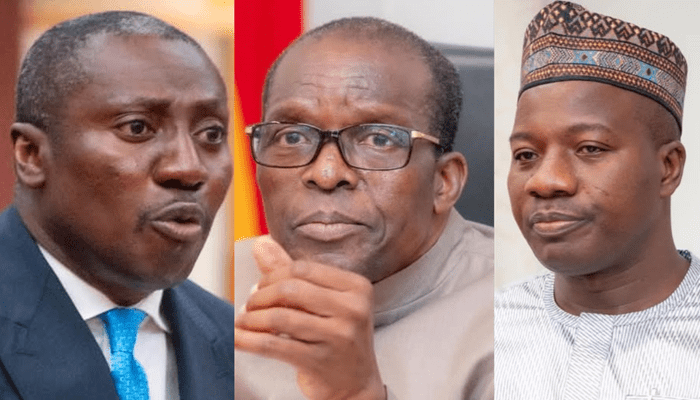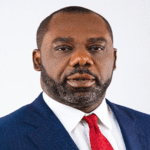Members of Parliament (MPs) have approved over GH₵266 million (GH₵266,699,904) to themselves for monitoring projects funded by the Ghana Education Trust Fund (GETFund) and the District Assemblies Common Fund (DACF) in their constituencies.
This means that each MP will receive GH₵966,304 in 2025 for project monitoring.
The allocation consists of GH₵816,304.35 from the DACF, as the fund’s administrator proposed distributing GH₵225.3 million (GH₵225,300,000.6) equally among all 276 MPs for project monitoring and evaluation.
Additionally, GH₵150,000 has been earmarked from GETFund for MPs, translating to GH₵41.4 million (GH₵41,400,000) to oversee GETFund projects in their constituencies.
Initially, the GETFund distribution formula had proposed allocating GH₵250,000 per MP for educational projects, amounting to GH₵69 million.
The government expects to disburse approximately GH₵7.51 billion to the DACF while raising more than GH₵10 billion for the GETFund.
Comparison with district allocations
When the GH₵7.5 billion allocated to the DACF is divided equally among 261 Metropolitan, Municipal, and District Assemblies (MMDAs), each would receive just over GH₵28 million (GH₵28,735,632).
This means that the GH₵266,699,904 set aside for MPs’ monitoring is equivalent to the total allocation for at least nine district assemblies if funds are evenly distributed.
To put this into perspective, assuming a fully furnished six-classroom block with a staff common room, office, and store costs GH₵1 million, the amount MPs will spend on monitoring in just one year could build 266 of such school blocks.
Duplication of duties and wasteful spending
The allocation of funds for MPs’ monitoring activities is particularly troubling because it duplicates the work of several government agencies that already receive funds for this purpose. The GETFund itself, the Ministry of Education, DACF, and MMDAs all have dedicated monitoring units overseeing educational projects across Ghana.
These institutions already spend millions of cedis annually to ensure that projects are executed properly.
Additionally, in the health sector, the National Health Insurance Authority (NHIA) follows a similar pattern by allocating funds for health project monitoring to MPs.
This raises a fundamental question: why should MPs, whose primary mandate is to make laws and hold the Executive accountable, be allocated extra public funds to perform a function that is already well-covered by existing institutions?
Lawmakers or project executors?
MPs are elected to serve as lawmakers and representatives of the people.
Their primary responsibilities include drafting and passing laws, overseeing the Executive arm of government, and representing their constituents’ interests in Parliament.
However, their increasing involvement in project execution and monitoring blurs the lines between the responsibilities of the legislature and the executive.
This trend not only diverts attention from their legislative duties but also contributes to unnecessary spending of public funds, which could be better utilized in other pressing sectors such as healthcare, infrastructure, and job creation.
Misplaced priorities amid economic challenges
Ghana is currently facing serious economic challenges, including rising inflation, unemployment, and a struggling currency.
Public resources should be spent with utmost efficiency to provide relief to citizens.
In such difficult times, allocating GH₵266 million for MPs to monitor projects—when other government agencies already handle this—is indefensible.
This raises suspicions about misuse and possible mismanagement of funds, as there is no clear accountability mechanism to ensure these monitoring funds are properly utilized.
Call for accountability and proper use of funds
Ghanaians must demand transparency and accountability regarding the use of public funds.
The government and Parliament must reconsider this allocation and ensure that taxpayer money is spent prudently.
Instead of approving funds for MPs to perform roles already covered by multiple agencies, the government should strengthen existing monitoring institutions, enforce strict oversight on how GETFund resources are allocated and used, and ensure that MPs focus on their legislative duties instead of acting as project managers.
The allocation of GH₵266 million from GETFund to MPs is a misuse of scarce public resources at a time when Ghana faces economic hardships.
With multiple government agencies already responsible for project monitoring, giving MPs extra funds for the same purpose is a wasteful duplication of duties.
If Ghana is to develop efficiently, public officials—including MPs—must prioritize fiscal discipline, accountability, and the judicious use of resources.
It is time for Parliament and the government to put an end to wasteful spending and redirect funds to areas that truly benefit citizens.
Understanding DACF and GETFund
The District Assemblies Common Fund (DACF) is a statutory fund established by Ghana’s 1992 Constitution to support local development across the country’s districts.
Article 252(2) of the Constitution mandates that Parliament annually allocate not less than 5% of Ghana’s total revenue to the DACF for distribution among the District Assemblies.
The Ghana Education Trust Fund (GETFund) Levy, on the other hand, is a statutory 2.5% tax applied to the supply of goods and services in Ghana.
Revenue generated from the GETFund Levy is earmarked to support educational initiatives across the country, including infrastructure development, scholarships, and other educational programmes.
By ELVIS DARKO, Accra
- Friday, April 25, 2025 Newspaper Headlines - 25 April 2025
- Valeria, the amputee giving 1,000 other amputees new life - 25 April 2025
- Moses Baiden calls for unified African tech strategy - 25 April 2025



